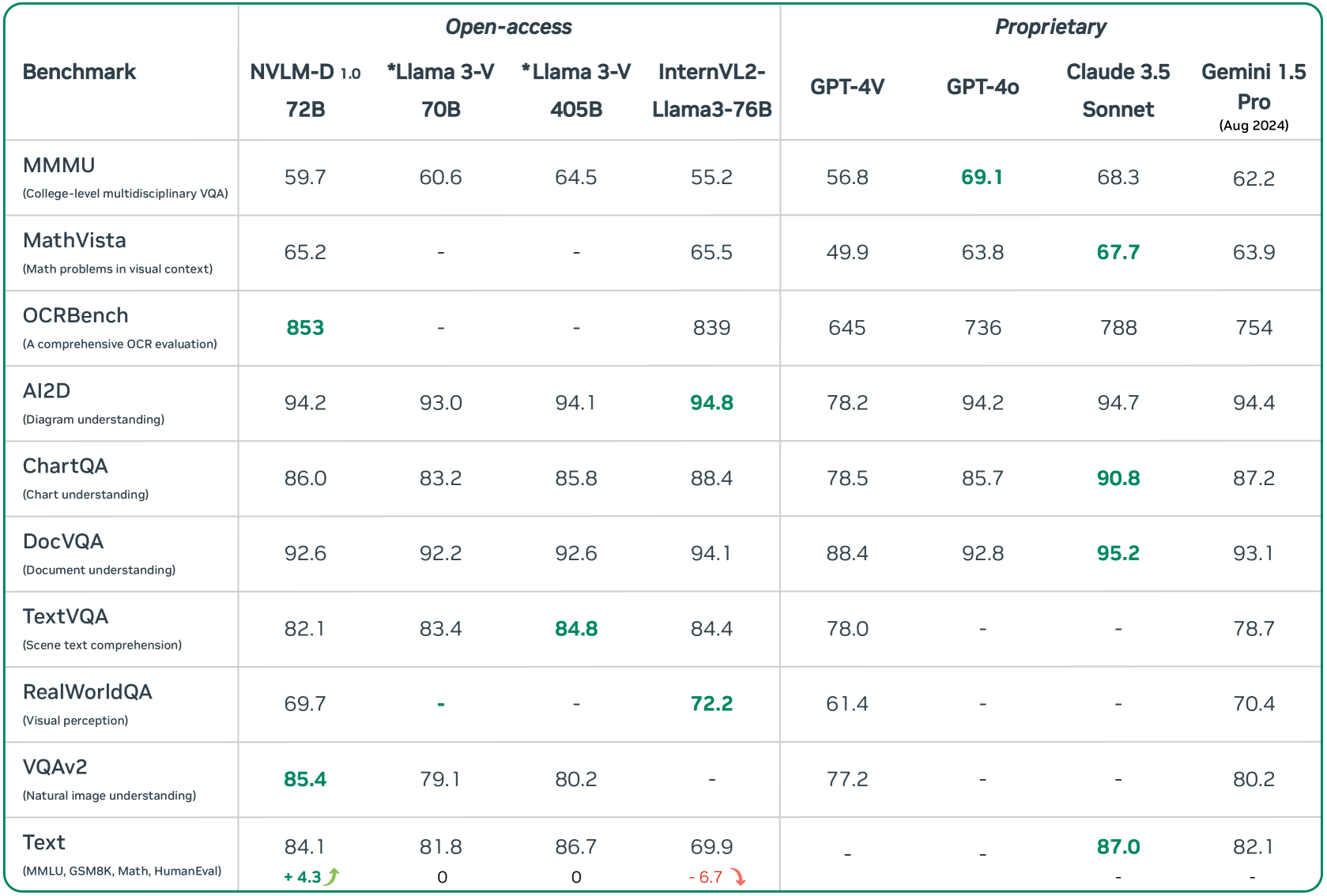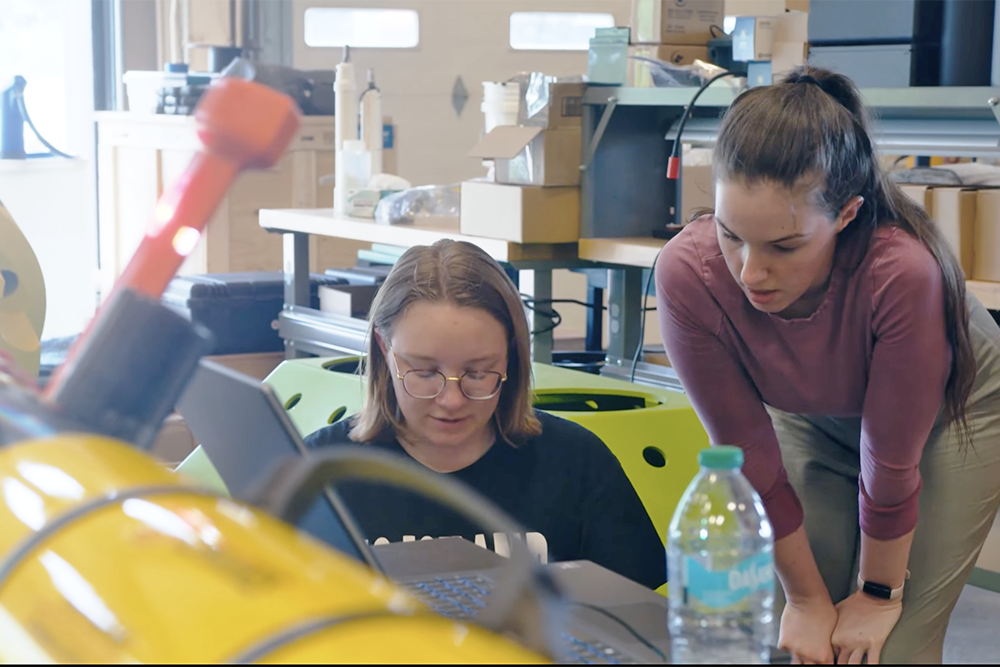DAI#59 – APIs, dead bills, and NVIDIA opens up
Welcome to our weekly roundup of human-crafted AI news. This week OpenAI handed out API goodies. California’s AI safety bill got killed. And NVIDIA surprised us with a powerful open model. Let’s dig in. Here come the agents OpenAI didn’t announce any new models (or Sora) at its Dev Day event, but developers were excited over new API features. The Realtime API will be a game-changer for making smarter applications that speak with users and even act as agents. The demo was really cool. There have been rumors about OpenAI going the “for-profit” route and awarding Sam Altman billions of The post DAI#59 – APIs, dead bills, and NVIDIA opens up appeared first on DailyAI.

Welcome to our weekly roundup of human-crafted AI news.
This week OpenAI handed out API goodies.
California’s AI safety bill got killed.
And NVIDIA surprised us with a powerful open model.
Let’s dig in.
Here come the agents
OpenAI didn’t announce any new models (or Sora) at its Dev Day event, but developers were excited over new API features. The Realtime API will be a game-changer for making smarter applications that speak with users and even act as agents.
There have been rumors about OpenAI going the “for-profit” route and awarding Sam Altman billions of dollars in equity but Altman dismissed these. Even so, the company is on the drive for more investment and they’ll expect some return for their cash.
Apple has integrated OpenAI’s models into its devices but dropped out of the latest funding round for OpenAI which is expected to raise approximately $6.5 billion.
We’re not sure why Apple doesn’t want a piece of the OpenAI pie but it might have something to do with new developments with its Apple Intelligence. Or maybe it’s related to Sam Altman’s demand for exclusivity.
Tell me you have no moat without telling me you have no moat. pic.twitter.com/3I18MosvOg
— Pedro Domingos (@pmddomingos) October 3, 2024
Kill bill
Gavin Newsom had to decide between putting a safety rev limiter on AI developers or letting them go full steam ahead. In the end, he decided to veto California’s SB 1047 AI safety bill and offered some interesting reasons why.
Are we really at a point where we face genuine AI risks yet?
Well that escalated quickly https://t.co/xhZCITRJjE pic.twitter.com/aLZn4blS8G
— AI Notkilleveryoneism Memes
(@AISafetyMemes) September 30, 2024
Newsom has signed a range of AI bills over the last month related to deepfakes, AI watermarking, child safety, performers’ AI rights, and election misinformation. Last week he signed AB 2013 which will really shake things up for LLM creators.
The bill says that on or before January 1, 2026, developers will need to provide a high-level summary of the training dataset of any models made from January 1, 2022 onward if the model is made available in California. Some of these requirements could air some dirty secrets.
More EU AI regs
The EU is clearly a lot more concerned about AI safety than the rest of the world. Either that or they just enjoy writing and passing legislation. This week they kickstarted a project to write an AI code of practice to attempt to balance innovation & safety.
When you see who heads up the safety technical group you’ll have a good idea of which way they’ll be leaning.
Liquid foundation models
Transformer models are what gave us ChatGPT but there’s been a lot of debate recently about whether they will be up to delivering the next leap in AI. A company called Liquid AI is shaking things up with its Liquid Foundation Models (LFMs).
These aren’t your typical generative AIs. LFMs are specifically optimized to manage longer-context data, making them ideal for tasks have to handle sequential data like text, audio, or video.
The LFMs achieve impressive performance with a much smaller model, less memory, and less compute.
NVIDIA opens up
Nvidia just dropped a game-changer: an open-source AI model that goes head-to-head with big players like OpenAI and Google. Their new NVLM 1.0 lineup, led by the flagship 72B parameter NVLM-D-72B, shines in both vision and language tasks while also leveling up text-only capabilities.
With open weights and NVIDIA’s promise to release the code, it’s getting harder to justify paying for proprietary models for a lot of use cases.

Just say know
A new study found that the latest large language models (LLMs) are less likely to admit when they don’t know an answer to a user’s question. When users ask these models a question they’re more likely to make something up rather than admit they don’t know the answer.
The study highlights the need for a fundamental shift in the design and development of general-purpose AI, especially when it’s used in high-stakes areas. Researchers are still trying to understand why AI models are so keen to please us instead of saying: ‘Sorry, I don’t know the answer.’
AI inside
It seems like everyone is slapping an “AI” label on their products to pull in customers. Here are a few AI-powered tools that are actually worth checking out.
Bluedot: Record, transcribe, and summarize your meetings with AI-generated notes without a bot.
Guidde: Guidde magically turns your workflows into step-by-step video guides, complete with AI-generated voiceovers and pro-level visuals, all in just a few clicks.
In other news…
Here are some other clickworthy AI stories we enjoyed this week:
- Meta’s AI-powered smart glasses raise concerns about privacy and user data.
- AI tools are spilling the beans on awkward company secrets.
- MIT makes a breakthrough in robotics to handle real-life chaos.
- LinkedIn faces legal complications over its AI integration.
- Anthropic hires OpenAI co-founder Durk Kingma.
- Y Combinator is being criticized after it backed an AI startup that admits it basically cloned another AI startup.
And that’s a wrap.
If you live in California we’d love to know how you feel about SB 1047 getting vetoed. Is it a missed opportunity for AI safety or a positive step that will see us get AGI soon? With powerful open-source models like NVIDIA’s new bombshell, it’s going to be harder to regulate LLMs anyway.
OpenAI’s Realtime API was the highlight this week. Even if you’re not a developer, the prospect of interacting with smarter customer service bots that talk to you is pretty cool. Unless you work as a customer service agent and you’d like to keep your job that is.
Let us know what you think, follow us on X, and send us links to cool AI stuff we may have missed.
The post DAI#59 – APIs, dead bills, and NVIDIA opens up appeared first on DailyAI.













.jpg)








